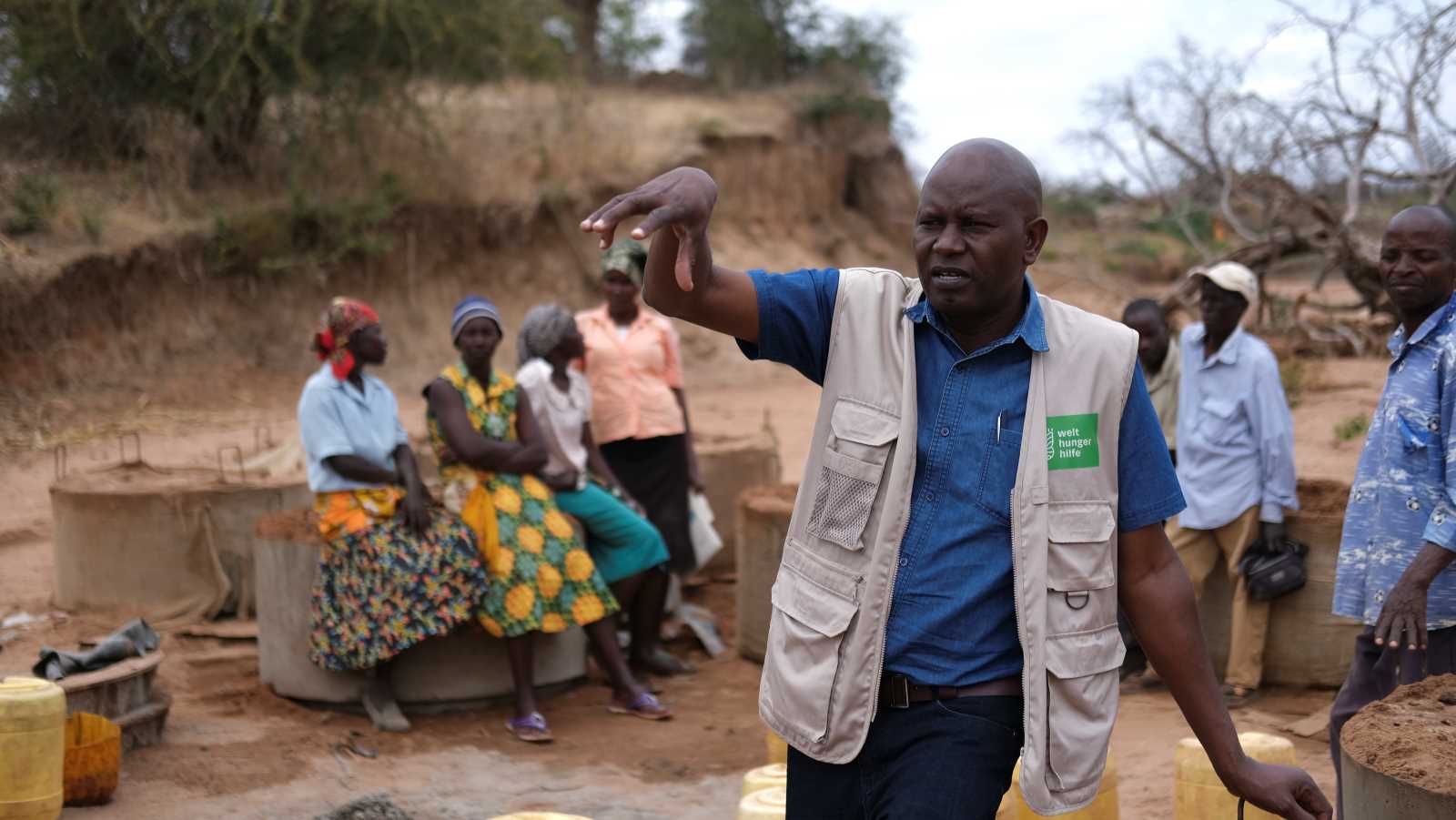Blog
Preventing poverty

In the past, Germany's Federal Ministry for Economic Cooperation and Development (BMZ) was unwilling to fund ongoing expenses for social protection in partner countries. The reason was that it wanted to support investments, not consumption.
In the past ten years, however, its approach has changed. The BMZ is now in favour of social protection schemes and is contributing funding. According to Peter Krahl, a BMZ officer, the freedom from fear of losing one's primary income is a human right. Moreover, experience shows that social protection does not drain an economy's potential, but actually boosts its productivity. The reason is that people who know that they will not plunge into desperate poverty are more willing to invest in the education of their children or set up a small business. Those without protection, by contrast, tend to prioritise making money immediately.
Marcus Loewe of the German Development Institute (DIE – Deutsches Institut für Entwicklungspolitik) points out that social protection and nation building are closely related. The most striking example is Germany. After unification in the late 19th century, Otto von Bismarck introduced a pension system and an unemployment insurance. The idea was to stall the labour movement, but the unexpected result was that the beneficiaries of the then innovative social protection systems began to identify with the new political order. Many other countries later copied Bismarck's model, including France and the USA. It is based on all formally employed people paying obligatory contributions (“payroll taxes”) to protection schemes which, in turn, more or less guarantee their standard of life in old age or when they lose their jobs. Germany's public health insurance operates in the much same way.
In many developing countries and emerging markets, however, the informal sector tends to be huge. The implication is that only the small share of people who work in formal employment or in government service enjoy social protection. Egypt is an example, as Amirah El-Haddad, another DIE scholar, told the PEGNet conference in Bonn in September.
According to El-Haddad, 90 % of Egyptian men were only informally employed in 2012, and their share has been rising since pro-market reforms were started in the 1990s. Research has shown that 75 % of the informally employed earn less than the legal minimum wage, so raising the minimum wage does not help them. After all, the informal sector, by definition, largely escapes government regulation and oversight.
If policymakers want to improve poor people's lives in such circumstances they need to take measures to improve wages in the informal sector even though that sector largely bypasses the law. There are options. In El-Haddad’s eyes, for example, Egypt could benefit from copying the rural minimum wage that India introduced in the first decade of this century. It is called Mahatma Gandhi National Rural Employment Guarantee (MGNREGA). It stipulates that one adult member of each rural household is entitled to at least 100 days of formal employment at the legal minimum wage. The scheme has its flaws, so it's results in some Indian states have been disappointing. However, it did make a dent in rural poverty in other states.
As El-Haddad sees it, that could be the case in Egypt as well. The point is to provide people who depend on informal occupation with opportunities. The more they become able to refuse the worst informal jobs, the more informal wages are likely to rise.
Link protection to growth promotion
Saweda Liverpool-Tasie is a Nigerian economist who teaches at Michigan State University in the USA. She appreciates donor governments' growing interest in social protection issues. Development agencies, in her opinion, should pay close attention to how economies are changing and be prepared to grasp unexpected opportunities.
She says, for example, that small and medium scale enterprises have been expanding fast in Nigeria in recent years, without officialdom paying much attention. According to her, it is essential to promote social protection, structural change and economic growth at the same time.
In development circles, the debate on social protection has largely been revolving around a different question in recent years: should developing countries adopt universal protection schemes that serve the entire population, or should they take a more targeted approach to alleviate the suffering of the poorest people?
Stephen Kidd of the British consultancy Development Pathways is in favour of universal schemes. His reasons include that:
- targeting in itself is difficult and costly, reducing the resources that are not available for poverty reduction,
- universal schemes serve the majority of people and therefore tend to be quite popular, which is especially important in countries under democratic rule, whereas
- targeted schemes often stoke division between those who benefit and those who don't.
Kidd rejects the argument that universal protection schemes are unaffordable in developing countries. He points out that the minimum old age pension or universal child credit normally only require a few percentage points of a poor country's gross domestic product, so introducing them is more a question of political priorities than of tight budgets. Universal social protection, in the consultant's view, serves the goal of building and deepening democracy. The reason is that it reflects the desires of masses of voters and, once established, reinforces their sense of citizenship. His advice to donor governments is to help crisis countries to establish such schemes in order to boost legitimate statehood.
According to Kidd, however, the World Bank and the International Monetary Fund, two powerful multilateral agencies, prefer targeted programmes because of their small-state ideology. They want government intervention in markets to be reduced to the absolute minimum required. Kidd warns that their approach of funding targeted protection schemes with loans is risky: though the loans have a large concessional component and are only repayable after many years, they may contribute to future debt crises. In the consultant's opinion, unversal schemes that depend on tax money (income tax, payroll tax and other taxes) are preferable, not least because they are more democratic. Donor grants, of course, can be helpful, especially at the start.
Stefan Dercon of Oxford University sees things in a rather different light. According to him, targeted interventions are becoming ever more promising thanks to digital technology. In many African countries, for example, money can now be disbursed by smartphone even in remote rural areas. Moreover, it is becoming easier to identify people, which is essential for targeted action. About 800 million people live in extreme poverty around the world, he argues, and it would make sense to support them in particular.
Social protection is typically a nation-state issue. Nonetheless, Dercon is considering global action. He says that humanitarian agencies would do well to opt for digital aid disbursements in crisis regions. In South Sudan's civil war, for example, aid agencies struggle to provide food everywhere, but informal traders still manage to operate. That means that even in situations of civil strife, purchasing power can make a difference. To the extent that people can pay for it, food is likely to become available. Dercon argues that the humanitarian problems would not be as bad as they are today in many crisis regions, had such interventions been prepared for before violence escalated.
The debate on what international social protection might look like has only just begun. Given that the motto of the Sustainable Development Goals is to leave no one behind, I think it is likely to gain momentum. In respect to the current financial problems in Zimbabwe and Argentina, I recently argued so in a blog post. In light of what was discussed at the PEGNet conference, I plan to return to this issue soon.












